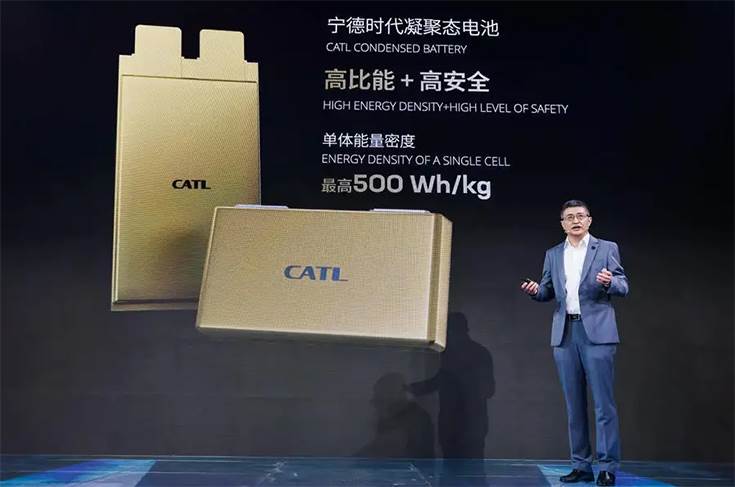
Wu Kai, the chief scientist of CATL, and his team have been awarded the European Inventor Award 2023 for the ‘Non-EPO countries’ category for their contributions to lithium-ion battery safety. The award ceremony was held in Valencia, Spain earlier this month.
“It is a great honour to win such a prestigious award, which will shine a path forward to further innovation efforts for me and CATL. What is more, electric vehicles powered by our advanced and safe batteries are enabling more people to embrace a sustainable lifestyle, contributing to the global energy transition. I hope that more and more inventors will dedicate themselves to the e-mobility and energy transition so that together we can develop more innovations for the benefit of mankind,” said Wu Kai.
Launched by European Patent Office (EPO) in 2006, the European Inventor Award is a global, highly recognised innovation prize which celebrates the Tomorrow Shapers – inventors whose perseverance, ingenuity and creativity are paving the way to a brighter future. The ‘Non-EPO countries’ category recognises the work of outstanding inventors from outside the EPO’s 39-member states who have been granted a European patent.
Chinese battery giant CATL (Contemporary Amperex Technology Co Ltd) was the world’s leading supplier for electric car batteries in 2022, according to South Korean research firm SNE research. The Chinese manufacturer sold 165.7GWh of batteries between January and November last year, tripling the output of BYD.
It has several partnerships with EV manufacturers, including BMW (which it will supply cylindrical cells to from 2025) and Ford (which will licence CATL’s lithium-iron-phosphate technology to build cells in Michigan, US).

“Automotive-grade” version of the new cells will enter mass production by the end of the year.
New ultra-dense CATL batteries weigh just 2kg per kWh
In April, at Auto Shanghai 2023, CATL launched a radical new type of cell with an energy density of 500Wh per 1kg, which could enable electric cars to use far lighter batteries and offer longer ranges.
It represents a significant advance in battery technology: the Panasonic 2170 cells used in the Tesla Model 3 are widely reported to have a density of around 260Wh per 1kg, almost half that of the new ‘condensed’ units. CATL’s Qilin battery, which recently entered mass production, has a maximum density of 255Wh per 1kg.
An “automotive-grade” version of the new condensed cells will enter mass production by the end of this year, according to the Chinese manufacturer. Initially, the focus is on trialling the new technology in an aviation context. CATL says the new packs could enable the first electric airliner.
“Meeting customers’ requirements is the core driving force that drives technological innovation for CATL,” said chief scientist Wu Kai.
The new technology could yield 100kWh battery packs weighing just 200kg, a significant reduction compared with current cells. For comparison, the 83.7kWh lithium-ion battery pack fitted to the Audi E-tron GT weighs 630kg.
Smaller, lighter battery packs open up a world of opportunities for electric car makers, creating the potential for tightly packaged urban EVs with longer ranges and lightweight sports cars, for example, and across all segments could make for a reduction in ride height and a boost in interior space.
(Additional inputs from Autocar UK)